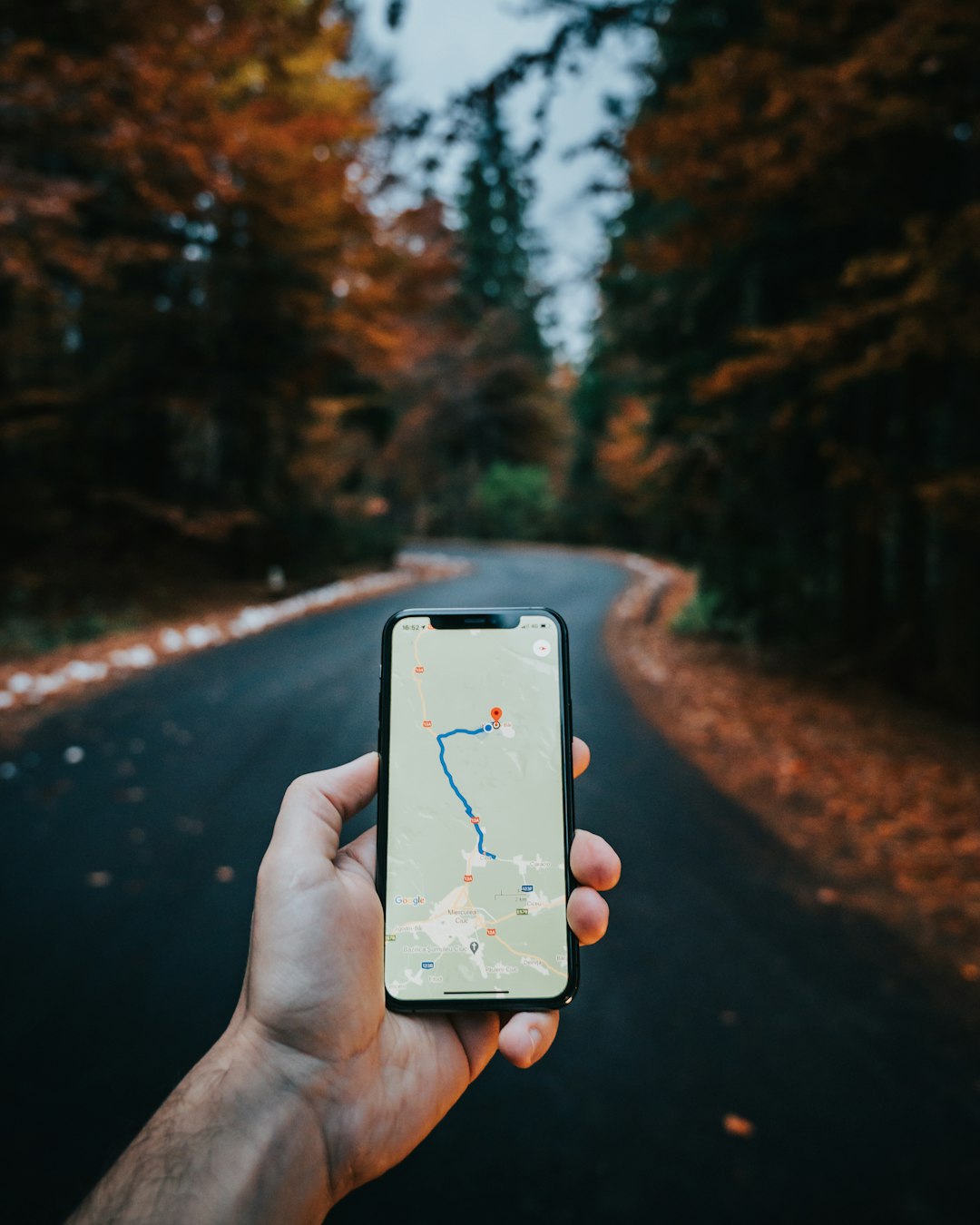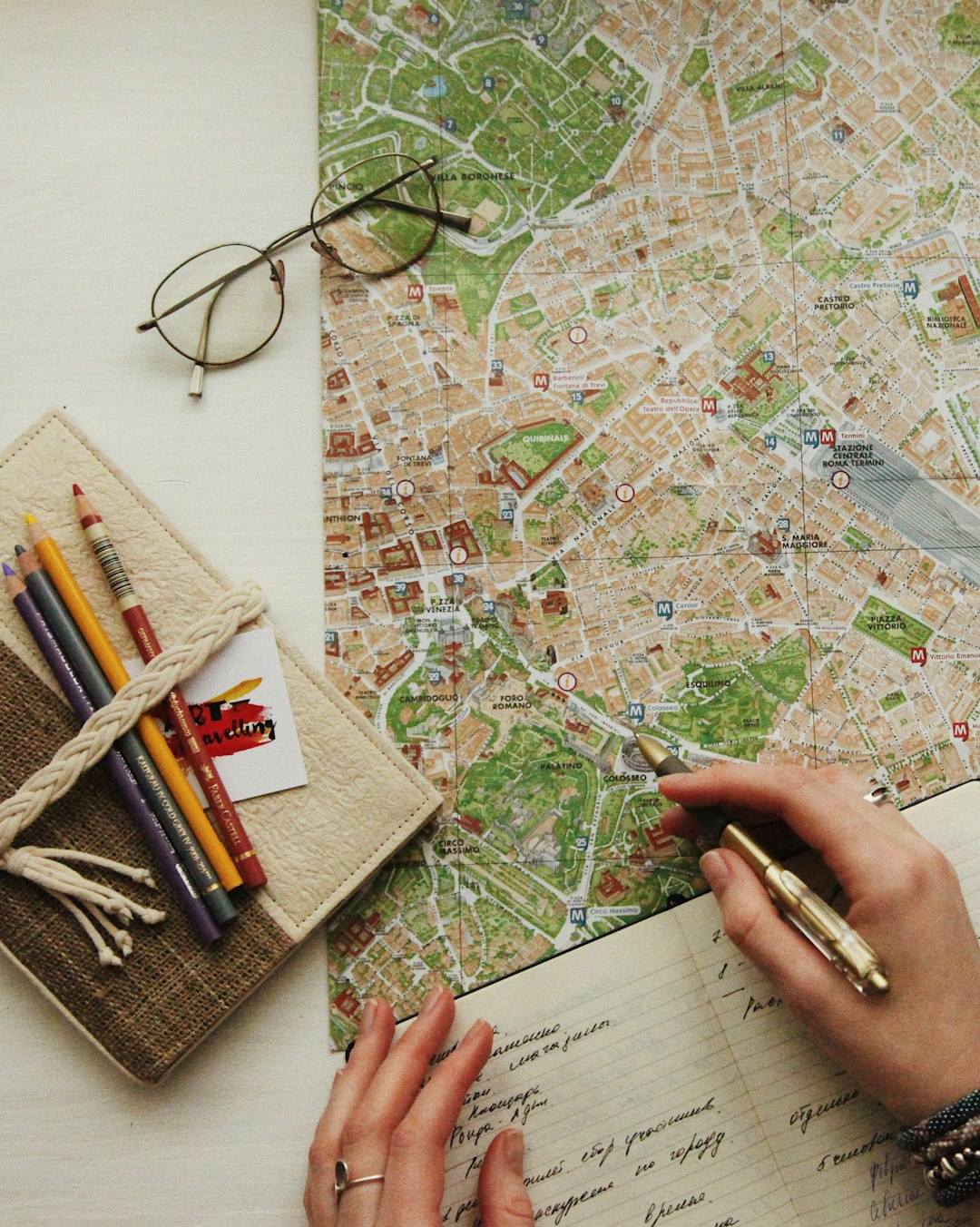How We Get Where We're Going Matters
Do you want to be safe or free?
Rebecca Solnit, an author I admire tremendously, recently posted on Facebook about the effects of the constant use of GPS on our memory and spatial imagination. Her words struck me, hard, on multiple different levels.
Solnit linked to a study by the National Institutes of Health that showed habitual use of GPS technology negatively impacts spatial memory. In other words, when we’ve got the pleasant tones of the GPS in our ear, telling us where to go and when, we stop paying attention to how long it takes us to get from one point on the journey to the next and what visual markers exist at certain crucial points on our route. We don’t internalize the route so that we could navigate it again in the future without having to rely on the map. The less we do those things the less able to do them we become.
On my recent vacation, which involved a long, twisty diagonal drive across the entirety of Pennsylvania, snaking in and out of tiny towns across the northern Appalachians, let me be clear, I was grateful for my GPS. At one point we did about three miles on a highway that was labeled both North some-number-highway-I-can’t-remember and South another-number-highway-I-can’t-remember at the same time, which I’m pretty sure defies all the laws of physics, logic, and map etiquette (that’s Pennsylvania for you). But because we had the GPS, my driving companion and I could laugh repeatedly and hysterically about the absurdity of the situation rather than having to pull over and consult a paper map while simultaneously burning sage and saying prayers in the hopes that we hadn’t been pulled into a live-action reenactment of the Twilight Zone.
When I’m driving somewhere I’ve never been and never plan to be again I will absolutely rely on my GPS. I remember all too clearly when every drive to some random place involved simultaneously clutching a coffee and snack-stained paper in one hand, driving with the other, trying to decipher my own hieroglyphics, and barely keeping my eyes on the road. When it wasn’t absurd in less mind-bending ways than going two opposing directions at the same time, it was patently dangerous.
I also remember, however, moving to Seattle in my early twenties— the first city I lived in after leaving home for good. My job involved navigating the city and surrounding suburbs on the lackluster public transit system in order to get from one scheduled workshop or speaking engagement to another— on time, no less. Half the time the bus would only land me in vague approximation to wherever I was trying to go and then I’d have to figure out how to walk through neighborhoods the rest of the way. The other half of the time making the necessary bus connections to get from point A to point B required traveling two sides of a triangle into and then back out of downtown because the whole system was organized like spokes in a wheel. Simply walking straight (or nearly) along the direct route, which constituted the third side of the triangle, was much faster.
I never had to learn to navigate D.C., where I grew up, in the same way. I knew the places I needed to go and the fastest ways to get there but I never explored. I never had to internalize the map of the city into my body so that I could end up on any random corner and know where I was in space. Seattle gave me that experience and it was deeply satisfying. Within a handful of months of arriving I could, in fact, stand on any corner within the city limits, know which direction I was facing, and which way to go to get where I wanted.
The city felt like mine in a way nowhere ever had before.
Now, living somewhere longer than I’ve ever lived anywhere before, I can be lazy about using my GPS. My kid needs dropping off at a friend’s house and I don’t catalog street names the way I used to (because I can always use my GPS), so I just plug the address into my phone and let Google Maps tell me where to go. When I get wherever we’re headed I always feel a little sheepish because, literally, I’ve driven past that road hundreds of times.
I tell myself I’ll remember the road name the next time, but I don’t. I do, however, remember the house at the corner of the turn or the tree that comes right before I have to slow down to not miss it, which is something. I’m retaining my visual memory skills if not my word memory. I’m feeding the relationship between my body and this place, participating actively in orienting myself in the world.

Beyond the issue of how the use of GPS concretely affects our interaction with space, time, and memory, the metaphors provided for how we navigate the world philosophically and ethically are worth considering. Solnit writes (emphasis mine):
The problem with these phenomena is that though they generally help get you where you are going, that’s all they do. With a map you take charge; with these other means you take orders and don’t learn your way around, any more than you learn math by using a calculator. You remain dependent, and your trajectory requires obedience. If you figure out where you’re going by map, you gradually learn the lay of the land and eventually maps become unnecessary, or rather the map has migrated inside your head, a radically interactive journey far beyond the horizon of most digital navigational devices. The map becomes obsolete as you become oriented.
Are our belief systems ones that we absorbed from the explicit or implicit teachings of our families, religions, or communities that we have simply accepted at face value, following along the route prescribed without question? Or have we taken a step far enough back to see how those belief systems provide context and then chosen our own route— internalizing the map provided when it’s helpful but participating actively in navigating our own direction?
It's our choices that matter in the end. Not wishes, not words, not promises. — Alexandra Bracken
Do I still sometimes, in the face of the overwhelming confusions and complications of life, wish someone would just tell me what to do? Absolutely. Navigating the map entirely on my own authority is exhausting, and increasingly everything feels like uncharted territory. Conversely, being able to rest in the confidence that someone else has already figured out what to do and where to go and I just need to submit to their greater understanding seems sort of idyllic. Comforting. Peaceful.
And I do think there is plenty to be said for the importance of submitting to the authority of experts when appropriate. This pandemic has been an object lesson in the profound levels of stupidity and danger we can devolve to when we insist we each are the only and best authority, regardless of whether we know anything about what the hell terrain we’re trying to navigate.
But my desire to be told what to do so that I don’t have to take responsibility for my own steps, for determining my own direction, and for internalizing beliefs and information deeply enough that I can then think critically and make my own choices, is juvenile. There’s no integrity in it. It’s living from the outside in rather than the inside out— orienting myself based on outside prescription rather than internal knowing— and that’s an invitation to authoritarianism.
Do I think the prevalence of the use of GPS is priming us for fascism? No. But, also, maybe? In this deep neurological and psychological way that we may not realize until it’s too late?
In our increasingly technological and overstimulating world it makes sense that we reach for things that make our lives easier. I’m no Luddite. I’m going to use the tools available when it makes sense (like when I’m traveling through the backwoods of northwestern Pennsylvania). But it’s worth considering when we lean on convenience in the moment to our long-term detriment.
It’s also worth discerning when we accept other people’s ideas and beliefs as our own because it’s comforting and safe, instead of choosing our own path, taking risks, and bearing consequences. That’s how we practice our integrity and embody our freedom.



Given time enough before I have to go somewhere I am unfamiliar with or on a long trip I go to Google Maps and put in the addresses, if I have them, and then study the options provided or create my own variations. when I actually make the trip I may find GPS taking me different directions and at times I say nope to a GPS direction knowing from my earlier study of the map that I want to go another way. Often times, after the GPS stops trying to get you to go back to its way, it comes around to where I wanted to go. Sometimes I just follow the GPS. But I like to visualize the route before going as often as I can. I'm a visual person.
I really like this one. Good food for thought... and, having had a father who was a cartographer (albeit, one who worked on computer maps and international mapping standards and therefore, helped to bring GPS to life!), I always had a great love of maps, and started off with a very healthy mistrust of the GPS! But that was mostly because the early ones did not make it easy to see the larger map. They lacked context. I am going to be thinking about this one for a while...I must confess to using my phone GPS quite a lot these days. Maybe it's time to break out the old maps again? Or, look at where someplace is on the GPS-provided map - and then, figure out how to get there on my own. :)